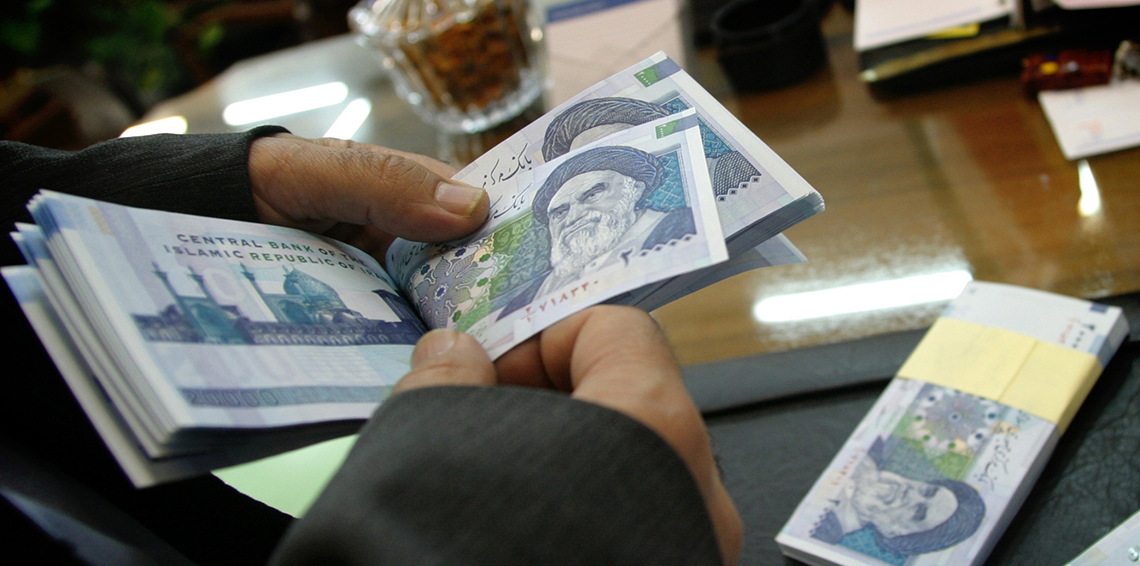Subscripe to be the first to know about our updates!

Iran’s Economy Slumps as US Sanctions Pile on the Pain
Chelsea Bruce-Lockhart
Donald Trump’s sanctions against Iran have triggered a collapse in economic growth, pushing the Islamic republic into a deep recession and lifting inflation towards 40 per cent, according to the IMF. The fund on Monday linked its forecast of a 6 per cent contraction in Iran this year with Mr Trump’s efforts to tighten an economic squeeze on the country. The economic slowdown is stoking popular discontent and heightening political tensions between reformists allied to President Hassan Rouhani and hardliners, who have long been staunchly opposed to dialogue with the US. The US measures are set to cause increasing pain after the Trump administration said it would start to enforce sanctions on some of Iran’s biggest oil buyers, which had been given waivers to import its crude. Japan, South Korea, Turkey, India and China face mounting US pressure to stop importing Iranian oil. The US reimposed restrictions on Iran’s oil industry and banks last year after Mr Trump abandoned a nuclear pact that western powers signed with Tehran in 2015, which had granted sanctions relief in return for Iran limiting its nuclear activities. But the Islamic republic says economic pressure will not force it to negotiate with the Trump administration over its regional and defence policies. “The enemy wants to drag us to the negotiating table through economic pressure,” said General Qasem Soleimani, commander of the overseas arm of the hardline Revolutionary Guards, on Monday. “Any negotiations under the current circumstances will be mere surrender and we definitely will not undergo this humiliation.” Mohammad Javad Zarif, Iran’s foreign minister, told Fox News at the weekend that White House national security adviser John Bolton, was seeking to lure Iran into a conflict aimed at fostering “regime change”. The IMF highlighted the US sanctions as a drag on regional growth. It also warned that annual inflation in Iran could reach 37 per cent this year — one of the highest rates in the past two decades — and potentially rise further if oil exports continue to fall. In the fund’s previous forecast in October it predicted that Iran’s economy would shrink 3.6 per cent this year. A 6 per cent fall in gross domestic product would mark the economy’s worst performance since 2012, when the IMF said GDP dropped 7.7 per cent as the Obama administration’s sanctions tied to its nuclear activities began to bite. The government of Mr Rouhani, who took office in 2013, is under huge domestic pressure as US sanctions wipe out his economic achievements, which had included bringing inflation under control and ending the last sanctions-induced recession. While hardline politicians accuse the Rouhani government of failure to soften the impact of sanctions, voters complain about soaring prices and a rise in joblessness. “Every day when I go shopping, I think yesterday I was better off than today,” said Maryam, a 48-year-old housewife. “I wake up every morning and realise there has been a jump in the price of chicken or a doubling in the price of onions and tomatoes.”
The US measures have already caused Iran’s oil exports — the economy’s lifeline — to plummet from a peak of 2.8m barrels a day last May to about 1.3m b/d. Output is likely to fall further after the US decision to end sanctions waivers. The Trump administration has said it wants to slash Iran’s crude exports “to zero” as it seeks to rein in Iranian activities that it says fuel conflict and extremism across the Arab world. Jihad Azour, the IMF’s regional director, said it was not clear how much further Iran’s crude exports would drop. “We still need clarity on what zero means,” he said. “Iran could still export to cover humanitarian needs and we are yet to see how other countries comply with the removal of the waivers.” Germany, France and the UK — European signatories to the Iran nuclear deal — have sought to cushion the impact of US sanctions by announcing the launch of a special purpose vehicle, Instex, in a bid to keep financial and trade channels open with Iran. But the move was seen as being largely symbolic and has done little to ease the financial pressure.
Collapsing growth in Iran comes as other Middle Eastern oil exporters face another year of weak growth because of lower average crude prices and rising geopolitical tensions. The IMF said any contagion effect from Iran to Gulf economies would be alleviated by relatively limited trade and investment ties with them. Saudi Arabia and the United Arab Emirates, which accuse Iran of interference in the Arab world, have welcomed the reimposition of sanctions in the hope that draining Tehran’s coffers will undermine its ability to fund allies in Syria, Iraq, Lebanon and Yemen. But the tougher sanctions regime has also raised intra-Gulf tensions, including threats from Iran’s Revolutionary Guards to block the Strait of Hormuz in retaliation. “Geopolitical tensions on the renewal of Iran sanctions and removal of waivers is having an impact on overall political stability in the region,” said Mr Azour. Rising political tensions have been accompanied by the revival of popular anger across the region, including large street protests that led to armies ousting the presidents of Algeria and Sudan, as well as unrest in Iran last year. “We have also seen a pick-up in social discontent since 2017 — there is a feeling among the youth that over the past five years they haven’t seen job creation and growth,” said Mr Azour.
Source; Financial Times